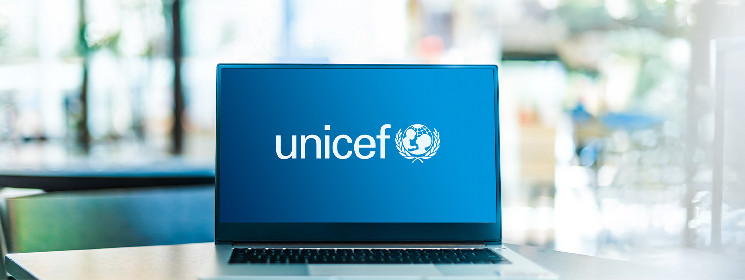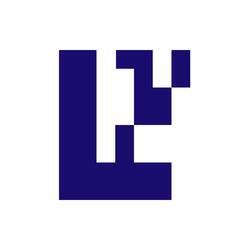The United Nations Children’s Fund (UNICEF) has announced the launch of a fund to support startups building real-world solutions using emerging technology to protect children online.
According to an official announcement, the UNICEF Venture Fund is looking for companies to experiment with artificial intelligence (AI) and blockchain in its program countries. The solutions provided by the companies must have the “potential to create radical change for children.”
The fund is mainly concerned with practical solutions that can help young people detect disinformation and build media literacy at the same time. Successful companies will receive as much as $100,000 in equity-free funding, with UNICEF targeting early-stage startups with a working prototype.
Companies that focus on open source licenses and practices are more likely to receive funding from UNICEF than closed-end companies.
At the top of the pile for UNICEF is the desire to use AI and Web3 solutions to combat disinformation, with the statement exploring potential applications. UNICEF is willing to fund cross-platform, interactive games that encourage fact-checking practices and new watermarking solutions.
The second objective of the fund is to support companies that collect large amounts of data to build secure AI models. Companies that build data collection and management systems are more likely to receive funding, while those that experiment with solutions to suppress cognitive biases in the process will be favored.
Companies with solutions that promote digital trust are likely to fall under UNICEF’s crosshairs, especially those that build around decentralized ownership and licensing protocols. AI-based solutions that monitor online risks and DLT-enabled Know Your Customer (KYC) tools are likely to receive funding.
“We are actively seeking companies that are pushing the boundaries with groundbreaking technologies in innovative and scalable ways with global relevance,” UNICEF said.
UNICEF works with emerging technology
In recent years, UNICEF has had a long and rich history with emerging technologies, leaning on blockchain and digital tools to help children in need.
Recognizing the potential for seismic change, the UN agency has invested more than $400,000 in developing countries to drive mainstream adoption of blockchain and Web3 technologies. In the fund’s first cohort, companies from Argentina, Sri Lanka and Nepal received a capital injection focused on decentralized solutions.
In early 2024, UNICEF signed a deal with Blockchain For Impact (BFI) to improve public health for children in India, spending more than $2 million on the initiative.
NEObank starts offering security tokens to customers
As security tokens gain momentum, SBI Sumishin Net Bank (NEObank) has joined the trend with an offering of security tokens to its customers, which experts are calling a disruptive play in the ecosystem.
NEObank will offer security tokens from Japan-based multinational Mitsui & Co Digital Asset Management to its nearly eight million customers, according to a report. The new arrangement will see NEObank dabble in security tokens for the first time, but it will lean on Mitsui (NASDAQ: SMFNF) for issuance.
Security tokens are digital representations of asset rights recorded on the blockchain, which act as investment contracts and are subject to securities regulations.
Mitsui entered the market in 2023 with a “direct-to-consumer” security token service, in an effort to remove dependence on brokers in the value chain. The service, called Alterna, opts for introducers instead of brokers in a bold attempt to reach consumers, disrupting traditional processes in the financial system.
Under the new arrangement, NEObank will act as introducers, but details of the operation remain scarce. While NEObank will offer the security tokens as investment options, it is unclear whether the bank will rely on its blockchain infrastructure or a third-party custody solution.
NEObank will handle anti-money laundering and Know Your Customer (KYC) checks, with experts pointing out that a secondary market will also be offered in addition to automated profit sharing.
Just weeks after Alterna went live, it partnered with Sony Bank (NASDAQ: SONY) to act as an introduction to its 1.9 million customers. Unsatisfied with dealing with financial institutions, Alterna partnered with retail company J Front Retailing to reach a deeper group of customers.
Alterna’s method has several benefits, including saving a fortune in costs by eliminating brokers, custodians, fund managers and other intermediaries. In addition to saving costs, this move will eliminate custody risk while improving transparency standards in the value chain for issuers and investors.
Security tokens in Japan are gaining popularity due to regulatory clarity provided by authorities. Financial giant Daiwa Securities (NASDAQ: DSECF) underwrote $153 million worth of security tokens and collaborated with Gincon on a first-of-its-kind proof of concept (PoC) on a public blockchain.
Daiwa will face several security token issuers in Japan, including Progmat’s issuance platform and MUFG (NASDAQ: MUFG), which has received support from key ecosystem players. Globally, Taiwan and South Korea are rushing toward full adoption of security tokens, with regulators issuing licenses to financial entities.
In order for artificial intelligence (AI) to function within the confines of the law and thrive in the face of growing challenges, it must integrate an enterprise blockchain system that guarantees the quality and ownership of data input, making it can keep the data secure while guaranteeing its immutability. of data. Check out CoinGeek’s coverage about this emerging technology for more information why Enterprise blockchain will be the backbone of AI.
Watch: IoT, IPv6 and the future of monetization
title=”YouTube video player” frameborder=”0″ allow=”accelerometer; autoplay; clipboard-write; encrypted media; gyroscope; picture-in-picture; web-share” referrerpolicy=”strict-origin-when-cross- origin ” allowfullscreen>











